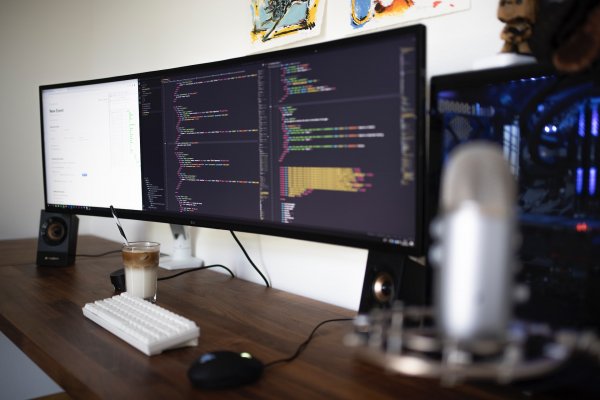With the number of things that you can connect to your computer growing every day, and seemingly every hour, you have probably never needed drivers as much as you need them now. If you don't know what software or hardware drivers are, don't worry as we will go over that in a bit. But for now, we can leave it as a piece of software that helps your computer parts talk to each other, as well as things that you can plug into your computer.
As more devices become available, the numbers of drivers increases. On top of this, driver files can also be updated by the manufacturers for multiple different reasons. If this is overwhelming, don't worry as we will cover some of the aspects of drivers, as well as answer the question of how often you should be updating your computer drivers in our article.
Let's get the big question out of the way first, and that is how often should you be updating your drivers? The truth is sadly a pretty open ended answer, and that is as often as they can be. Although this might sound like a very general response it comes down to two major aspects.
You can only update your driver software when new drivers are available. This isn't something that you can choose to do everyday, as you can only update it if the driver has been updated. You can check everyday for available updates, but there are a lot of drivers in most peoples computers so this would take a lot of time.
The second aspect that makes the answer pretty open ended is that you should update them if you are having issues with specific aspects of your computer. If you plug in a USB mouse, or keyboard and it just won't connect there is a chance that you need to update the driver for it to work. So again, you really only have to update your driver when you are having this issue.
So while you can only update drivers when they are available, it doesn't mean that you should be leaving your drivers out of date until something breaks. Sure, you might not see a reason to update it but there have been times when out of date drivers that aren't updated become security vulnerabilities. And no one wants to possibly have a compromised computer.
No matter what level of technical expertise you have, updating your device drivers doesn’t need to be a hassle if you know where to look for guidance. So, while it might sound like a lot of work it doesn't have to be, as we will go over some programs at the end that can help you. But next we will
So as we can see from that link to the possibilities of malicious files getting in through out of date drivers, we now know that eeping your drivers up to date is an essential part of maintaining the security and performance of your computer. To make sure that you’re always running the latest versions, it’s important to know how to check for updates. Here are three steps to help guide you through the process:
First, download a driver update software solution. We have done a bunch of reviews on what to look for and have picked out a couple that we really like. As always, you'll want to look for one with solid reviews from other users so that you can be sure it will work properly on your system. With this tool in hand, you’ll have access to all the most current drivers available online. In addition, some programs come with automated alerts when new versions are released. This can really take a lot of work off your plate, because sometimes you will never know that drivers are out of date until you encounter an issue.
Second, use the software to run a scan of your system for outdated or missing drivers. The program should quickly identify any issues and offer solutions for each one. Once identified, you can decide which ones need updating and then proceed with downloading them from their respective websites or manufacturers’ sites.
Finally, install each updated driver onto your machine, following its instructions. This step may require restarting your computer once completed - but doing so ensures that everything works as expected after the process is completed. Many of the programs that automatically update your drivers have roll back features so you can undo changes if for some reason they don't work.
The other option is to manually check the manufactures website to see which driver file is available, and compare it to what you currently have on your system. This can take a lot of time, but for some people who are good with computers, they might prefer this. As there is a trade off between time spent or sometimes spending money on automatic driver updating software. The choice is really up to you, and how comfortable you feel on your computer.
So now that we have an idea how often you should update your drivers, and how to do it let's look at the biggest reasons why you should update your computer drivers. We briefly went over the security aspect of keeping drivers up to date above, but there are more reasons than that.
Generally speaking, though, driver updates are designed to improve upon existing features while also introducing new ones as well as resolving any known issues related to security or performance. When applied correctly, such software upgrades help keep computers running smoothly and efficiently, ensuring you have as good of an experience as possible when using your computer.
On top of this updated drivers allow users to take advantage of certain advanced technologies that would otherwise be inaccessible due to outdated versions of previously installed programs. For instance, an upgraded graphics card driver may provide support for virtual reality (VR) applications that require high-end visuals in order to render 3D images and scenes accurately. So, if there have been new ways of making programs run better or smoother, updating your driver might actually make your computer faster.
Here is a good video that goes over the necessity of updating your drivers, where the host does talk about the pros and cons of each side of driver maintenance. While they do make some good points, they do agree with the points we have highlighted above, so check it out if you want a bit more in-depth information:
Updating drivers is important to keep your computer functioning properly and running as best as it can. It may seem like a hassle initially, but with just a little bit of effort, you can save yourself time and money down the line by avoiding potential problems caused by outdated drivers. By taking the initiative to check for driver updates regularly and installing them when necessary, you can ensure that your device will perform at its best and give you peace of mind knowing that all components are working as they should.
Now the real choice is, do you want to do the work on your own or would you like a piece of software that can automatically check for new driver options automatically. That is your decision, and we can't suggest one way of another what is best for you. What we can do is give you reviews of the top driver updating programs that we have tested, and show which ones we think are the best around. So make sure you check out the reviews we have done on automatic driver updaters if you are interested.





